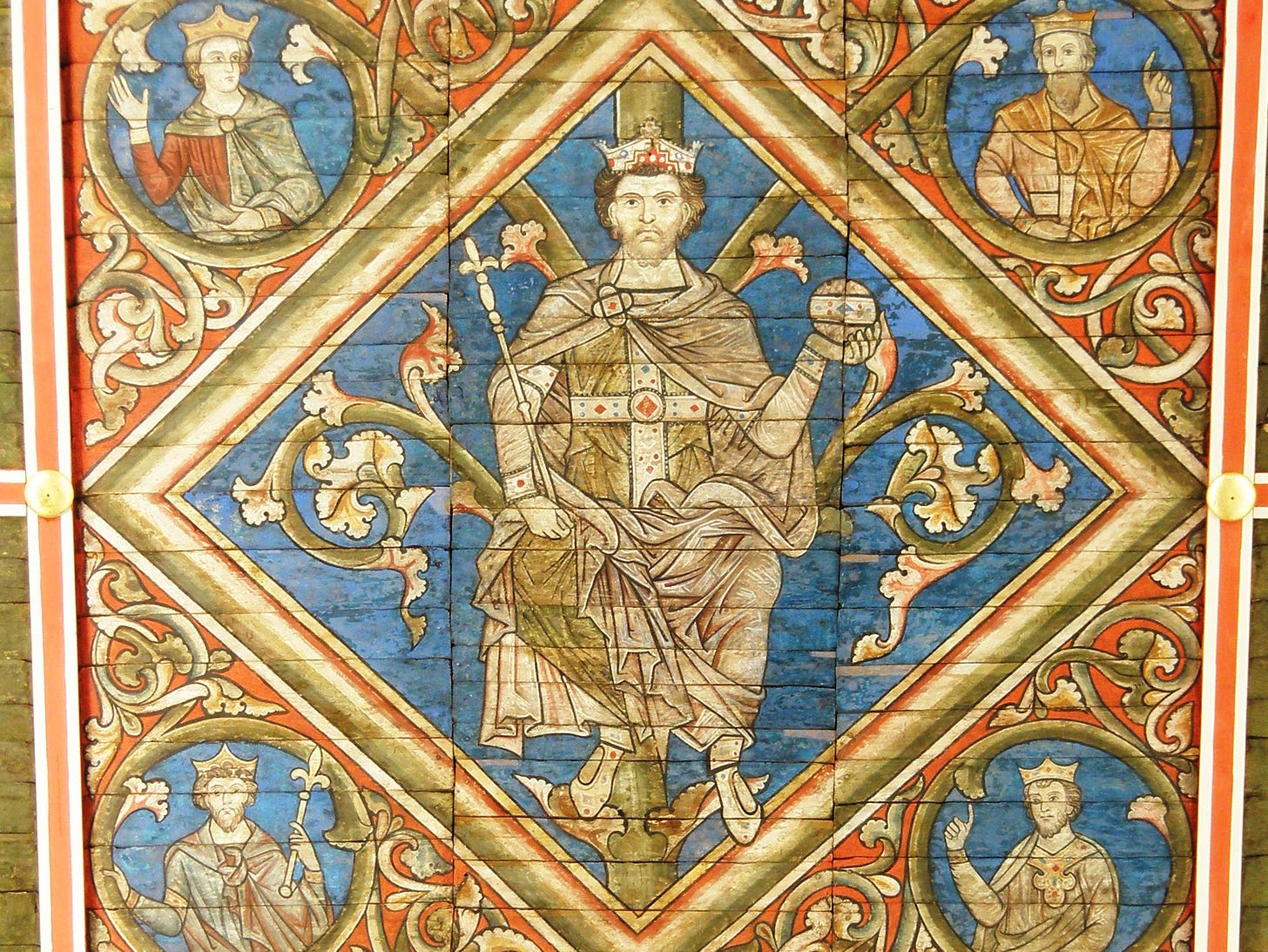Hezekiah was a good king. Many of the kings of Judah were idolaters—and don’t even get me started on the kings of Israel. Hezekiah, however, worshiped only the Lord. While most of the kings of Judah—even the good ones—neglected to tear down the high places and pillars where people worshiped idols, Hezekiah had them all destroyed. “For he held fast to the Lord; he did not depart from following him but kept the commandments that the Lord commanded Moses. The Lord was with him; wherever he went, he prospered” (2 Kings 18:6-7). Hezekiah was a swell guy. He trusted in God, who even gave him victory over the king of Assyria (2 Kings 18:17-19:37). When Isaiah prophesied that Hezekiah would soon die, the king implored God for a longer life, and God gave him fifteen more years.
At the very end of his reign, however, Hezekiah blew it. Why? It’s the same reason so many other leaders have fallen: pride. The king of Babylon sent messengers to Hezekiah with letters to present to him. Once they arrived, the smart play would have been to say something like, “Thanks for the letters! Now let’s kill the fatted calf and have ourselves a meal, and you boys can be on your way.” But he didn’t do that. “Hezekiah welcomed them.” Okay. So far, so good, but then, “He showed them all his treasure house, the silver, the gold, the spices, the precious oil, his armory, all that was found in his storehouses; there was nothing in his house or in all his realm that Hezekiah did not show them” (2 Kings 20:13).
Oops.
The prophet Isaiah wasn’t happy. “What did you show them?” he asked. Hezekiah’s answer was, basically, “Everything! All the gold and silver … all the good stuff… you know, the treasure!”
It doesn’t take a prophet to figure out that iron-age empires liked treasure and would take it by whatever means necessary. Isaiah cranked it up a notch, though. “Hear the word of the Lord,” he began. At this point, Hezekiah might have begun to wonder, “Am I in trouble here?” Isaiah continued, “Days are coming when all that is in your house, and that which your ancestors have stored up until this day, shall be carried to Babylon; nothing shall be left, says the Lord. Some of your own sons who are born to you shall be taken away; they shall be eunuchs in the palace of the king of Babylon” (20:17-18).
*Gulp
You would think this might have generated some self-reflection on Hezekiah’s part. When he was threatened by the messengers from the king of Assyria, he tore his clothes and covered himself in sackcloth (19:1). When he was told he would die, he begged God to remember his righteousness (20:3). In both cases, God was merciful to Hezekiah.
But Hezekiah didn’t do any of that this time. “Then Hezekiah said to Isaiah, ‘The word of the Lord that you have spoken is good.’ For he thought, ‘Why not, if there will be peace and security in my days?” (20:19). Put simply, Hezekiah shrugged.
This is the last episode narrated of Hezekiah’s rule, and he went out not with a bang, nor even a whimper, but a splat. In time, the Babylonians would displace the Assyrians as the major power in the region, and whereas Judah narrowly avoided destruction by the Assyrians, in 586 BC the Babylonians would destroy Jerusalem and its temple and take the people into exile.
Of course there were other factors besides Hezekiah’s blunder that resulted in the Babylonian Exile. What’s striking about this passage, though, is how little Hezekiah seems to care about those who come after him. The word of the Lord that you have spoken is good. He could live out the rest of his days in peace. As for his descendants— you know, the ones who would be turned into court eunuchs—not his problem.
At the end of his reign, Hezekiah lost his way as a leader. His mindset could be described by the theological phrase incurvatus in se—he was “curved in on himself.” He thought only of his own wellbeing. He wanted to retire in style, and didn’t care if the world burned after he was gone. Such a mindset is lethal for healthy leadership. I’ve seen more ministries destroyed by ego and self-centeredness than any other factor. Particularly for Christian leaders, our highest priority can’t be our own comfort, but the passing on of saving faith in Christ to future generations.
We may not always see the fruit of our labor in the moment, but we are planting seeds that will bear fruit in the days ahead by the work of God. In 1 Cor 3:6-9, Paul wrote of his missionary work,
I planted the seed, Apollos watered it, but God has been making it grow. So neither the one who plants nor the one who waters is anything, but only God, who makes things grow. The one who plants and the one who waters have one purpose, and they will each be rewarded according to their own labor. For we are co-workers in God’s service; you are God’s field, God’s building.
We labor in God’s service, not our own. Our work in this vineyard will come to bear on generations of people whose lives we will never know. Imagine a twenty-something woman in the year 2100. We don’t know quite what her life will be like, but we do know that she will still bear the weight of the human condition. She will struggle with sin, alienation, and a sense of purpose. And someone will come along who was discipled by one of your children in the faith, and that person will speak into her life. She will learn that God loves her, that he forgives her sins, and that there’s a better way to live. That young woman will never be the same, not just because of the faithful person who spoke the words of life to her, but because of the generations of saints and martyrs who made that moment possible.
Don’t be a Hezekiah—at least, not Hezekiah at the end. Be the person who says, “Whether or not I have peace in my day, I will lay the foundation for those who will come after me.” Align yourself with the will of God as a co-worker in his service.







This is Godly wisdom. It’s so easy to forget in this day and age that we Christian’s were called into something much bigger than to make a name for ourselves. We were all called to facilitate, both individually and corporately, the mission of God.
Very timely message for me. I have been slowly reading the Bible and just read these verses.